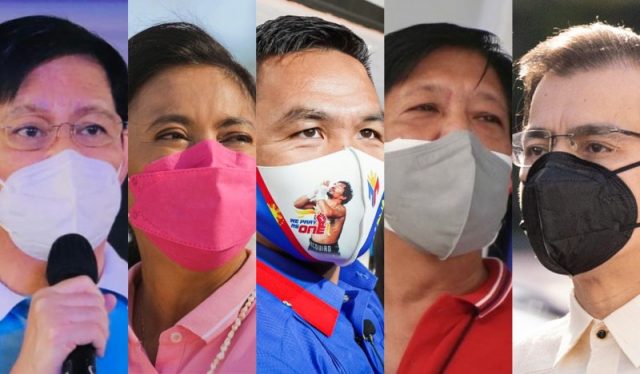
“Survey ethics is data ethics.”
A group advocating ethical data and technology use backed a statement released by the University of the Philippines’ School of Statistics following the proliferation of entities releasing surveys with unclear methodologies on social media.
Data Ethics PH on Monday stood by the statement released by the faculty members of UP who called out the “pervasive abuse of survey methodologies by some entities doing their own brand of research” and “promoting them [on] social media.”
“We have been observing these practices, including surveys not based on random sampling, such as videos of ‘kalye surveys’ being done by some vloggers and suspicious online surveys, especially on Twitter and Facebook. We are dismayed by their cavalier disregard for the principles of data gathering,” the faculty members said.
They stressed that surveys “reveal facts, beliefs, sentiments, and opinions based on a representation of the population.”
“Sample selection strategies can generate bias in the data collected in surveys. For instance, this happens when the sample tends to favor a segment of the population,” they added.
The professors also warned that the processes of data collection might also “generate bias.” It cited “an interviewer purposely affecting the answers of the respondents” as an example.
The faculty urged the public to be critical of surveys. They advised that the public should not immediately accept “survey results as they are.”
According to members of UP School of Statistics, surveys with proper implementations and controls can answer the following clearly:
- How was the sample selected?
- Which sectors of a population, if any, are being represented in the survey?
- What events surround the period of data gathering?
- When facing an interviewer, was the respondent interviewed in a neutral yet professional tone?
- What are the control mechanisms implemented to ensure accuracy of the protocols in data collection?
RELATED: Fake online election surveys do not follow international standards
Aside from pre-election surveys released without clear methodologies, statistician Peter Cayton, also a professor at UP School of Statistics, earlier decried the release of social media surveys that used reactions on Facebook and poll on Twitter as its gauge.
He said that these online surveys are “poorly designed.”
“I stand against online surveys that are poorly designed as a simply FB/Twitter poll of likes, emojis, or one click. They are surely nonrepresentative of the pulse of the nation,” Cayton said last November.
READ: Who’s your presidential bet? Why online election polls are not created equal
In its statement, the professors said that it will remain “vigilant in fighting for the ethical practice of statistical science especially when data and principles surrounding its acquisition, processing, analysis, and interpretation are haphazardly handled.”
#IStandWithUPSTAT
Meanwhile, Cayton expressed his support for the statement of his faculty by reposting it and tweeting “#IStandWithUPSTAT.”
Some Filipinos similarly tweeted the same hashtag in support of the faculty’s statement.
“As a statistics student #IStandWithUPSTAT,” a Twitter user wrote.
“Loud and clear! #IStandWithUPSTAT,” another online user tweeted.
The statement was released after reports of a supposed survey conducted by SPLAT Communications showed that there was “statistical impossibility” for presidential aspirant Vice President Leni Robredo to catch up with Ferdinand Marcos Jr’s numbers before the polls in May.
Some online users previously questioned the entity’s legitimacy and found out that it has YouTube videos with “unreliable and biased” content.
A Twitter user also looked at its channel and claimed that it appeared to be a “supporter of BBM,” which are the initials of Marcos Jr.
Yung splat communications is a supporter of bbm. May youtube channel sila na nagpapatunay na bbm supporter sila. To cut the story short they're trolls and not credible. Please see pictures. pic.twitter.com/VyUtMbjYUt
— Dio (@DioJoySkyKill) February 18, 2022
Another online user also shared supposed screengrabs of the page’s YouTube content which had sensationalized titles.
Ito pala yung Youtube channel ng SPLAT Communications na nagrelease ng report na statistically impossible makahabol si Leni. 🤣🤣🤣 "Sobrang professional talaga at hindi bias."https://t.co/8IIkwvbM07 pic.twitter.com/7KSaD2l0rs
— Master Dane (@dmsenar) February 17, 2022
SPLAT Communications lists itself as a “sports” page on Facebook.
It also labels itself as an “on-line resource for information on Sports Personalities Lifestyle Arts Travel” (sic).
Meanwhile, its YouTube channel claims that it “provides informative, educational and entertaining content that the viewers and subscribers like.”









